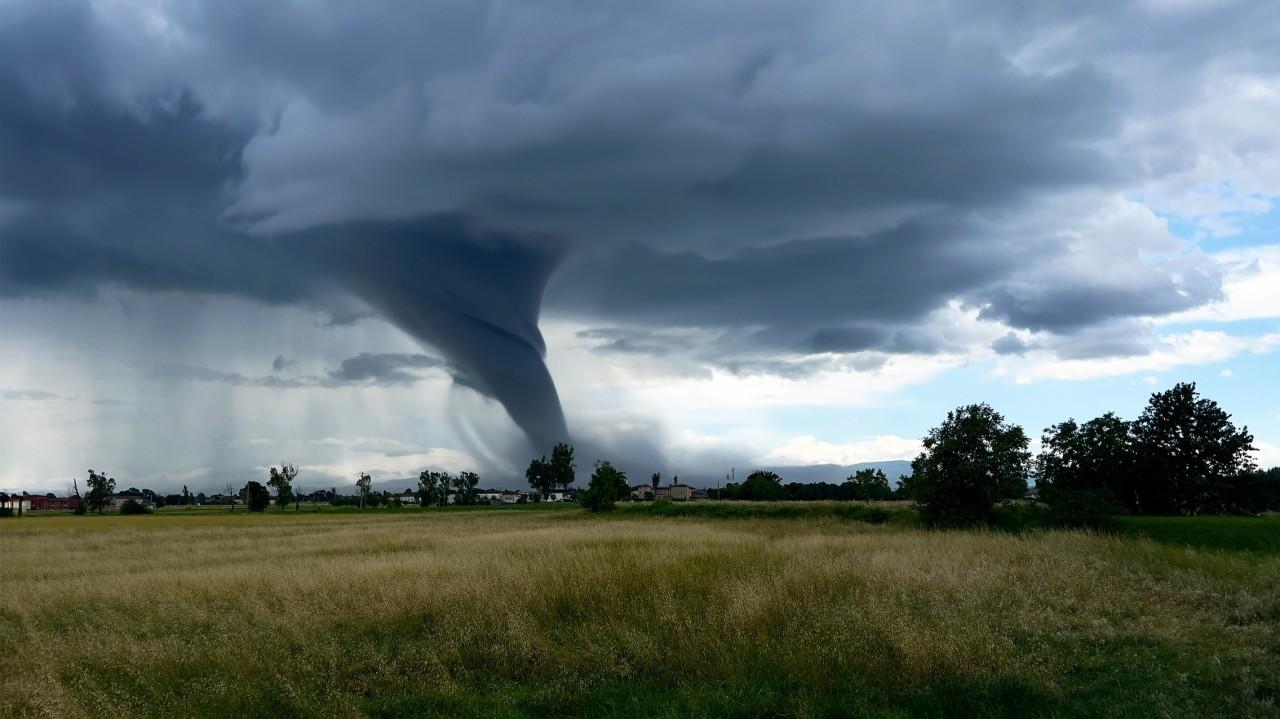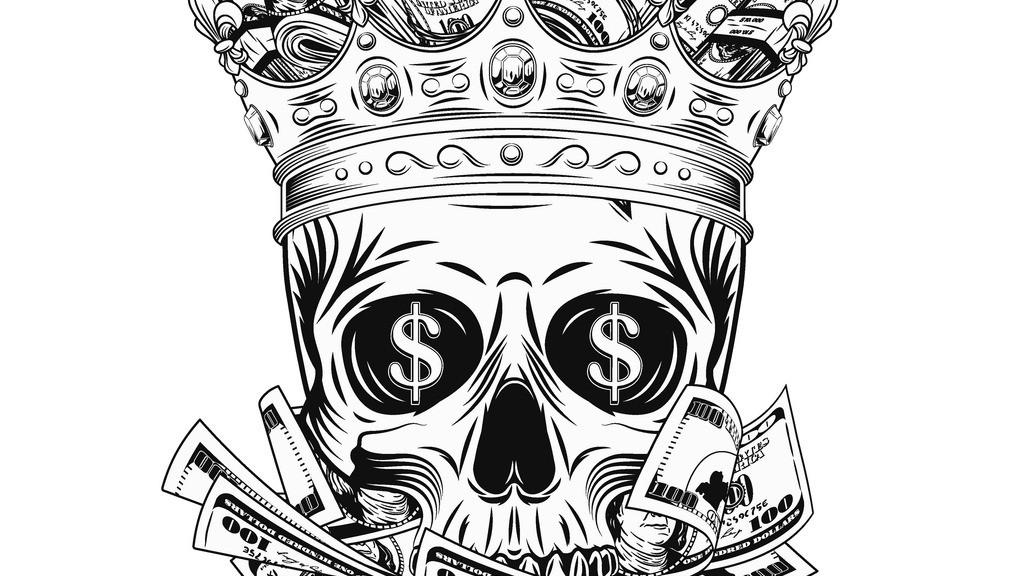“I guess they say it was the biggest day in financial history,” said President Trump Wednesday, his unexpectedly quick capitulation from a self-inflicted policy catastrophe had sparked a surge in stock prices. “Nobody’s ever heard of it. It’s gonna be a record,” he boasted, the cameras clicking. The stock market had been in freefall, as had the US dollar and the Treasury market, which is just the kind of move one should expect ahead of a true financial panic. Such across the board selling is rather unprecedented for the US market; it’s more commonly seen in emerging markets as the wheels come off. Only gold was rallying. “I thought that people were jumping a little bit out of line,” said the President, having just saved America from himself, his newfound power to move markets intoxicating. Foreign investors wanting out.
Overall: “For the last four decades, basically since I began my career in Wall Street, Wall Street has grown wealthier than ever before,” said Scott Bessent, doing his best to navigate the administration out of its bad trade. You see, the 1st trade plan was to make everyone in America richer, all at once. We would accelerate real GDP to 3-5% by reducing government spending, ramping energy production, slashing red tape, and suppressing interest rates. Immigration policy would limit labor supply, lift blue collar wages, and shortages would be met by laid-off government workers. Our NATO allies would boost deficit-spending. China would stimulate domestic consumption. Naturally, there were inconsistencies and weaknesses to the plan, but if you squinted, read it fast, one could envision it working. “And Wall Street can continue to grow and do well, but for the next four years, the Trump agenda is focused on Main Street,” continued the Treasury Secretary, battling for control of a cabinet that had grown chaotic, marveling that he found himself forced to engage in serious policy discussion with Peter Navarro and Ron Vara. “It’s Main Street’s turn, it’s Main Street’s turn to hire workers.” Trump 2.0 had turned out to be nothing like 1.0. And when it became clear that the farcical trade war, chaotic flipflopping, threats against our allies, and challenges to our domestic institutions and justice system meant that not everyone in America would become richer, because the rich were rapidly becoming poorer, Bessent’s options were to either cut his losses altogether or change the plan’s rationale. So, began the 2nd plan, which is to make the poorest 50% of Americans less poor, even if that means the top 10% who own 88% of US equities get less rich. “It’s Main Street’s turn to drive investment and it’s Main Street’s turn to restore the American dream,” said Bessent, knowing that changing your trade plan amidst steep losses sets you on a very slippery slope. And the risk, of course, is that the 2nd trade plan gives way to the 3rd. Which would likely be that all American’s must grow poorer, just temporarily, you’ll see, as we pursue these policies which will make America great once again.
Week-in-Review: Mon: Trump threatens extra 50% tariff on China. Greece central bank warns looming trade war to weigh heavily on Europe’s economic growth. Incoming Chancellor Merz says US tariffs create ‘urgent’ problem for Germany. JP Morgan’s Dimon warns trade war risks recession and higher prices while BlackRock’s Fink says we might already be in a recession. ECB priced to cut rates in April and June as tariffs threaten recession. Singapore’s PM warns end of free trade era ‘very hostile’ for small nations. Israel widens air strikes against neighbors in escalating campaign. Panama to file criminal complaint over canal concession. NFIB small bus. optimism 97.4 (98.7e), S&P -0.2%. Tue: China offers first hint of devaluation with weak renminbi fix. Trump to proceed with extra 50% tariff on China as trade war escalates. Trump announces ‘very high level’ talks with Iran during Netanyahu visit to DC. Mexico to step up fracking. Japan secures priority tariff negotiations with Trump. EU calls for ‘negotiated resolution’ with China in face of US tariffs. US Supreme Court allows Trump to use centuries-old law for deportations. Zelenskyy says Chinese men fighting for Russia captured in Ukraine. China gains dexterous upper hand in humanoid robot tussle with US. US revokes licenses for BP and Shell projects in Venezuelan waters. US revokes more than 500 foreign student visas. RBNZ cuts rate by 0.25% to 3.5% as exp. S&P -1.6%. Wed: Trump announces 90-day pause on reciprocal tariffs against non-retaliating countries. US and global stocks surge, US Treasuries sell-off deepens. March minutes reveal Fed’s growing stagflation concerns. China hits US imports with additional retaliatory tariff of 50%. Bank of Spain governor says global investors may reassess role of US dollar as haven currency. UK’s chancellor of the exchequer says trade war makes improved UK-EU relations ‘imperative’. Germany’s Merz strikes coalition deal with Social Democrats. Chinese State-owned funds and companies are bolstering stock markets with massive coordinated share buying. S&P +9.5%. Thur: UN trade chief asks US to rethink tariffs on poorest nations. EU weighs up buying more US gas due to Trump tariff pressure. Abu Dhabi steps up US gas investment. BoE drops sale of 10 and 30y gilts amid market turmoil. EU pauses tariff retaliation against US for 90 days, says it could tax Big Tech if Trump trade talks fail. PBoC allows weakening in CNY ‘fixing’ rate for six consecutive sessions to an 18y low. Head of British military makes first Beijing visit in 10 years. Top Chinese general removed in Xi’s latest purge. EU agrees to start free trade talks with UAE after Trump tariff war. US CPI 2.4% (2.5%e) / Core CPI 2.8% (3%e), US Jobless claims 223k as exp / cont. claims 1850k (1886k e), China CPI 0.1% as exp. S&P -3.5%. Fri: China increases retaliatory tariffs on US imports to 125%. NY Fed’s Williams says Trump tariffs could push US inflation to 4% this year, will likely raise unemployment and lower growth ‘considerably’. Fed’s Collins says Fed ‘absolutely’ ready to help stabilize market if needed. Switzerland seeks closer EU ties in response to US tariffs. US fires Greenland military base commander. UMich survey shows 1-year inflation expectations reaching highest level since 1981. US Dollar and Treasuries continue to sell off. UMich sent 50.8 (53.8e), Russia GDP 4.5% (3.6%e) / CPI 10.34% (10.30%e). S&P +1.8%. Sat: Trump exempts smartphones and other electronics from Chinese tariffs.
Weekly Close: S&P 500 +5.7% and VIX -7.75 at +37.56. Nikkei -0.6%, Shanghai -3.1%, Euro Stoxx -1.9%, Bovespa +0.3%, MSCI World +4.4%, and MSCI Emerging -3.9%. USD rose +14.9% vs Ethereum, +1.4% vs Indonesia, +1.0% vs India, +0.6% vs Bitcoin, +0.4% vs Brazil, +0.2% vs South Africa, and +0.1% vs China. USD fell -4.0% vs Australia, -3.5% vs Euro, -2.4% vs Canada, -2.3% vs Yen, -2.3% vs Sweden, -1.5% vs Sterling, -1.4% vs Russia, -0.7% vs Chile, -0.6% vs Mexico, and -0.2% vs Turkey. Gold +6.9%, Silver +9.2%, Oil -0.8%, Copper +2.7%, Iron Ore -5.9%, Corn +6.4%. 10yr Inflation Breakevens (EU -8bps at 1.73%, US +4bps at 2.23%, JP -11bps at 1.29%, and UK -10bps at 3.12%). 2yr Notes +31bps at 3.96% and 10yr Notes +50bps at 4.49%.
2025 Year-to-Date Equity Index Returns: Poland +24.2% priced in US dollars (+14.5% priced in zloty), Czech Republic +23% priced in US dollars (+12.9% in koruna), Greece +17.6% in dollars (+7.7% in euros), Hungary +17% (+7.1%), Spain +15.8% (+6%), Colombia +14.8% (+13.2%), Chile +12.9% (+10.7%), Brazil +11.5% (+6.2%), Germany +11.3% (+2.3%), Austria +10.4% (+1.5%), Italy +8.3% (-0.5%), Ireland +8% (-1.1%), Switzerland +7.3% (-3.1%), Norway +7% (+0.6%), Euro Stoxx 50 +6.8% (-2.2%), Mexico +6.6% (+4%), Portugal +6.5% (-2.5%), Finland +5.8% (-2.8%), France +5.2% (-3.7%), Korea +5.2% (+1.4%), HK +4.4% (+4.3%), South Africa +4% (+5.4%), Belgium +3.2% (-5.5%), Sweden +2.8% (-8.3%), Netherlands +1.9% (-6.7%), UK +1.6% (-2.6%), Canada -1.3% (-4.6%), Israel -2.1% (+1.2%), UAE -2.8% (-2.8%), China -3.3% (-3.4%), Singapore -4% (-7.3%), India -4.1% (-3.5%), Saudi Arabia -4.4% (-4.4%), Vietnam -4.4% (-3.5%), New Zealand -4.9% (-8.3%), Australia -5.2% (-6.3%), Philippines -5.4% (-6.8%), MSCI World -6.4% priced in US dollars, Japan -8% (-15.8%), S&P 500 -8.8%, Malaysia -10.4% (-11.4%), Turkey -11.3% (-4.6%), NASDAQ -13.4%, Taiwan -14.4% (-15.2%), Indonesia -14.9% (-11.5%), Argentina -14.9% (-11.2%), Russell -16.6%, Thailand -17.7% (-19.4%), Denmark -17.8% (-24.4%).
Arrogance: Having lived through many developed and emerging market crises over my 35 years, patterns repeat, rhyme. First comes a system that is materially out of balance. Such things take years to develop, which means private sector incumbents, politicians, policy makers, central bankers too, have figured out how to benefit from the imbalance persisting, which makes it likely that it does. The longer it goes on the more over-confident they become that they can contain it, control it. Arrogance. There’s corruption too, at least around the edges (rating agencies in 2008).
Concern: There comes a time when that system shifts from a state of perpetuating itself to collapsing in on itself. It rarely happens all at once, but unfolds over weeks, months, sometimes longer. Covid was really fast, rare. And as system reverses state, the incumbents who were once rather arrogant begin to grow concerned. At least some do. The smartest ones know that if you’re pretty sure that at some point there will be a panic, make sure you’re amongst the first to exit. And this is one of the many interconnected processes that leads the system to turn on itself.
Stubborn: Incumbents are stubborn, particularly if they have no money on the line, which means that even as a system turns, many refuse to believe it. Corporate CEOs are loathe to throw in the towel, it is simply too hard to make quick changes to business models, long-term contracts and fixed capital investments as a system reverses on itself. So, at first, most of these players hunker down, hold on, and refuse to recognize the change as it manifests. They panic late, selling, hedging. The politicians, policy makers, and central bankers are the last to panic.
Intervention: Depending on how out of balance a system is, and how painful the adjustment as it begins to manifest, the incumbents intervene. That can happen through lobbying, policy, interest rates, money printing, fiscal stimulus, emergency loans, government-funded buying of stocks, bonds, currencies, etc. The greater the system imbalance, the greater the necessary intervention. Depending on the credibility and solvency of a government it has more or less power to intervene. In general, interventions by credible governments work, at least temporarily.
Panic: Investors have faith that policy makers and politicians will intervene during periods of wild volatility, to restore order. When interventions fail, panic erupts, all hell breaks loose, the Sack of Rome ensues. While these are rare events in developed markets (Bank of England in 1992) they happen often in emerging markets. What this teaches is that society and the markets that allocate capital throughout national economies are built upon trust, faith, and confidence. When this is lost, when that foundation is compromised, everything tumbles.
Capitulation: Interventions most often come in a series. If the imbalance is of a manageable size, and the interventions can buy time for the problem to be resolved through economic growth, inflation, or some other factors/forces, then the crisis can be averted. But if in the end, the imbalance is too big, and the interventions are insufficient, then the incumbents who tried to stubbornly maintain the status quo are forced to accept reality and capitulate. It's always ugly. And yet, this is the way that systems restore balance. Which sets up a whole new cycle. Nature.
Anecdote: A crisis that caught the imagination of the western world was the UK’s exit from Europe’s Exchange Rate Mechanism (ERM) on September 16, 1992. We called that Black Wednesday. I was 25, Lehman London, just young and dumb enough to find it not particularly surprising. I was trading short term interest rates at the time, and along with the UK’s central bank, Sweden had also been intervening in increasingly frantic ways to prevent the krona from breaking its peg to the ECU. Having exhausted other options, the Swedish central bank hiked overnight interest rates to 500% in panicked desperation, trying to punish speculators who had to borrow krona to fund their shorts. A few years later, the Italians similarly tried and failed to defend the lira. The chaos that follows such failed interventions is profound. And what makes today’s unfolding crisis so interesting is that in America’s case, the systemic imbalances are so numerous, debts, deficits, unfunded entitlement obligations, income inequality, political dysfunction, social splintering. This has all existed in an environment where asset valuations are amongst the highest in history, while foreigners hold massive overweight positions in US debt and equity markets. The American Exceptionalism trade. And as precarious as this combination appeared for years, even as it expanded further, it all worked fine provided investors retained trust, faith and confidence in our system. What we glimpsed in the past few weeks is how fast these systemic imbalances will collapse in on themselves when these foundations of our system are lost. Wednesday’s 90-day tariff suspension was the first panicked intervention of this cycle, hastily decided as equities, bonds, and the dollar were all plunging, gold rising. And foreigners did what smart investors typically do when they’re overweight a system that is turning on itself. They sold into the intervention rally. The dollar fell, bonds too, equities as well, although to a lesser degree. And it is too early to tell whether the self-inflicted harm we have already done to our system’s foundation can be restored by a series of abrupt and embarrassing policy reversals and interventions. Or, whether the damage done is already too great given the magnitude of the imbalances.
Good luck out there,
Eric Peters
Chief Investment Officer
One River Asset Management
Disclaimer: All characters and events contained herein are entirely fictional. Even those things that appear based on real people and actual events are products of the author’s imagination. Any similarity is merely coincidental. The numbers are unreliable. The statistics too. Consequently, this message does not contain any investment recommendation, advice, or solicitation of any sort for any product, fund or service. The views expressed are strictly those of the author, even if often times they are not actually views held by the author, or directly contradict those views genuinely held by the author. And the views may certainly differ from those of any firm or person that the author may advise, converse with, or otherwise be associated with. Lastly, any inappropriate language, innuendo or dark humor contained herein is not specifically intended to offend the reader. And besides, nothing could possibly be more offensive than the real-life actions of the inept policy makers, corrupt elected leaders and short, paranoid dictators who infest our little planet. Yet we suffer their indignities every day. Oh yeah, past performance is not indicative of future returns.





